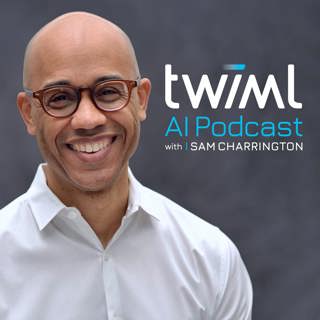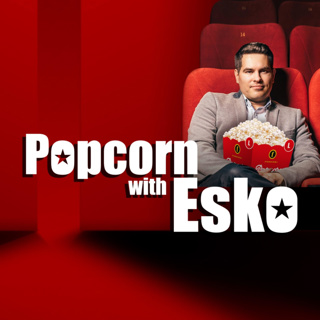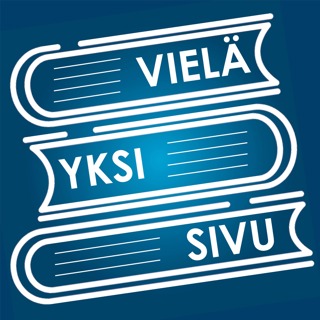
AI for Enterprise Decisioning at Scale with Rob Walker - #573
Today we’re joined by Rob Walker, VP of decisioning & analytics and gm of one-to-one customer engagement at Pegasystems. Rob, who you might know from his previous appearances on the podcast, joins us to discuss his work on AI and ML in the context of customer engagement and decisioning, the various problems that need to be solved, including solving the “next best” problem. We explore the distinction between the idea of the next best action and determining it from a recommender system, how the combination of machine learning and heuristics are currently co-existing in engagements, scaling model evaluation, and some of the challenges they’re facing when dealing with problems of responsible AI and how they’re managed. Finally, we spend a few minutes digging into the upcoming PegaWorld conference, and what attendees should anticipate at the event. The complete show notes for this episode can be found at twimlai.com/go/573
16 Touko 202239min

Data Rights, Quantification and Governance for Ethical AI with Margaret Mitchell - #572
Today we close out our coverage of the ICLR series joined by Meg Mitchell, chief ethics scientist and researcher at Hugging Face. In our conversation with Meg, we discuss her participation in the WikiM3L Workshop, as well as her transition into her new role at Hugging Face, which has afforded her the ability to prioritize coding in her work around AI ethics. We explore her thoughts on the work happening in the fields of data curation and data governance, her interest in the inclusive sharing of datasets and creation of models that don't disproportionately underperform or exploit subpopulations, and how data collection practices have changed over the years. We also touch on changes to data protection laws happening in some pretty uncertain places, the evolution of her work on Model Cards, and how she’s using this and recent Data Cards work to lower the barrier to entry to responsibly informed development of data and sharing of data. The complete show notes for this episode can be found at twimlai.com/go/572
12 Touko 202241min

Studying Machine Intelligence with Been Kim - #571
Today we continue our ICLR coverage joined by Been Kim, a staff research scientist at Google Brain, and an ICLR 2022 Invited Speaker. Been, whose research has historically been focused on interpretability in machine learning, delivered the keynote Beyond interpretability: developing a language to shape our relationships with AI, which explores the need to study AI machines as scientific objects, in isolation and with humans, which will provide principles for tools, but also is necessary to take our working relationship with AI to the next level. Before we dig into Been’s talk, she characterizes where we are as an industry and community with interpretability, and what the current state of the art is for interpretability techniques. We explore how the Gestalt principles appear in neural networks, Been’s choice to characterize communication with machines as a language as opposed to a set of principles or foundational understanding, and much much more. The complete show notes for this episode can be found at twimlai.com/go/571
9 Touko 202252min

Advances in Neural Compression with Auke Wiggers - #570
Today we’re joined by Auke Wiggers, an AI research scientist at Qualcomm. In our conversation with Auke, we discuss his team’s recent research on data compression using generative models. We discuss the relationship between historical compression research and the current trend of neural compression, and the benefit of neural codecs, which learn to compress data from examples. We also explore the performance evaluation process and the recent developments that show that these models can operate in real-time on a mobile device. Finally, we discuss another ICLR paper, “Transformer-based transform coding”, that proposes a vision transformer-based architecture for image and video coding, and some of his team’s other accepted works at the conference. The complete show notes for this episode can be found at twimlai.com/go/570
2 Touko 202237min

Mixture-of-Experts and Trends in Large-Scale Language Modeling with Irwan Bello - #569
Today we’re joined by Irwan Bello, formerly a research scientist at Google Brain, and now on the founding team at a stealth AI startup. We begin our conversation with an exploration of Irwan’s recent paper, Designing Effective Sparse Expert Models, which acts as a design guide for building sparse large language model architectures. We discuss mixture of experts as a technique, the scalability of this method, and it's applicability beyond NLP tasks the data sets this experiment was benchmarked against. We also explore Irwan’s interest in the research areas of alignment and retrieval, talking through interesting lines of work for each area including instruction tuning and direct alignment. The complete show notes for this episode can be found at twimlai.com/go/569
25 Huhti 202246min

Daring to DAIR: Distributed AI Research with Timnit Gebru - #568
Today we’re joined by friend of the show Timnit Gebru, the founder and executive director of DAIR, the Distributed Artificial Intelligence Research Institute. In our conversation with Timnit, we discuss her journey to create DAIR, their goals and some of the challenges shes faced along the way. We start is the obvious place, Timnit being “resignated” from Google after writing and publishing a paper detailing the dangers of large language models, the fallout from that paper and her firing, and the eventual founding of DAIR. We discuss the importance of the “distributed” nature of the institute, how they’re going about figuring out what is in scope and out of scope for the institute’s research charter, and what building an institution means to her. We also explore the importance of independent alternatives to traditional research structures, if we should be pessimistic about the impact of internal ethics and responsible AI teams in industry due to the overwhelming power they wield, examples she looks to of what not to do when building out the institute, and much much more! The complete show notes for this episode can be found at twimlai.com/go/568
18 Huhti 202251min

Hierarchical and Continual RL with Doina Precup - #567
Today we’re joined by Doina Precup, a research team lead at DeepMind Montreal, and a professor at McGill University. In our conversation with Doina, we discuss her recent research interests, including her work in hierarchical reinforcement learning, with the goal being agents learning abstract representations, especially over time. We also explore her work on reward specification for RL agents, where she hypothesizes that a reward signal in a complex environment could lead an agent to develop attributes of intuitive intelligence. We also dig into quite a few of her papers, including On the Expressivity of Markov Reward, which won a NeruIPS 2021 outstanding paper award. Finally, we discuss the analogy between hierarchical RL and CNNs, her work in continual RL, and her thoughts on the evolution of RL in the recent past and present, and the biggest challenges facing the field going forward. The complete show notes for this episode can be found at twimlai.com/go/567
11 Huhti 202250min

Open-Source Drug Discovery with DeepChem with Bharath Ramsundar - #566
Today we’re joined by Bharath Ramsundar, founder and CEO of Deep Forest Sciences. In our conversation with Bharath, we explore his work on the DeepChem, an open-source library for drug discovery, materials science, quantum chemistry, and biology tools. We discuss the challenges that biotech and pharmaceutical companies are facing as they attempt to incorporate AI into the drug discovery process, where the innovation frontier is, and what the promise is for AI in this field in the near term. We also dig into the origins of DeepChem and the problems it's solving for practitioners, the capabilities that are enabled when using this library as opposed to others, and MoleculeNET, a dataset and benchmark focused on molecular design that lives within the DeepChem suite. The complete show notes for this episode can be found at twimlai.com/go/566
4 Huhti 202229min





















